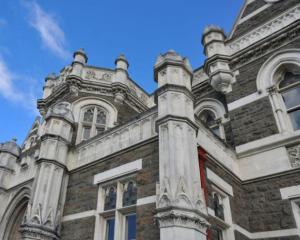
As the Iraqi Government continues to struggle to repel advances led by militants of the Islamic State of Iraq and the Levant (Isil), Iraqis living in Dunedin fear their family members could be the next ones killed.
University of Otago biochemistry researcher Dr Atheer Matroud, who moved to New Zealand in 2008, said the deteriorating situation was taking its toll on Dunedin's tight-knit Iraqi community and making it difficult to concentrate on work.
''One of the scenarios coming through my mind is that ... I receive a call telling me your dad is killed. I feel that and I live that, without it happening.
''Sometimes I fall into tears, just because I imagine that I receive a call that my dad is killed or my mother is killed.''
This made it difficult picking up phone calls from family in Iraq, especially when they came at odd hours.
''You see it is from Iraq, you want to pick it up, [but] at the same time you don't want to hear bad news.''
Iraqi Students' Association president Zaid Dohan (21) had family members in Mosul, now under Isil control, who were afraid to leave the house.
''Even though they are at the moment targeting personnel in the army, police officers, they are capable of doing anything.
''They don't even take hostages any more. If they catch you and you are on the bad side of them - you don't believe in what they believe - they will kill you.''
Both were against the United States intervening militarily.
They believed the best way of stopping Isil was to stop the funding of rebel groups. Mr Matroud said the United States had supported rebels in Syria and now it was coming back to haunt it, like it had previously when it supported extremists fighting against Soviet Union control in Afghanistan.
He also believed the extremist Wahabi branch of Islam, exported from Saudi Arabia, was partly to blame.
''It's the ideology of the Wahabi and no-one is stopping them,'' he said.
The pair believed there were about 10 Iraqi families and 20 Iraqi Otago University students living in Dunedin.












